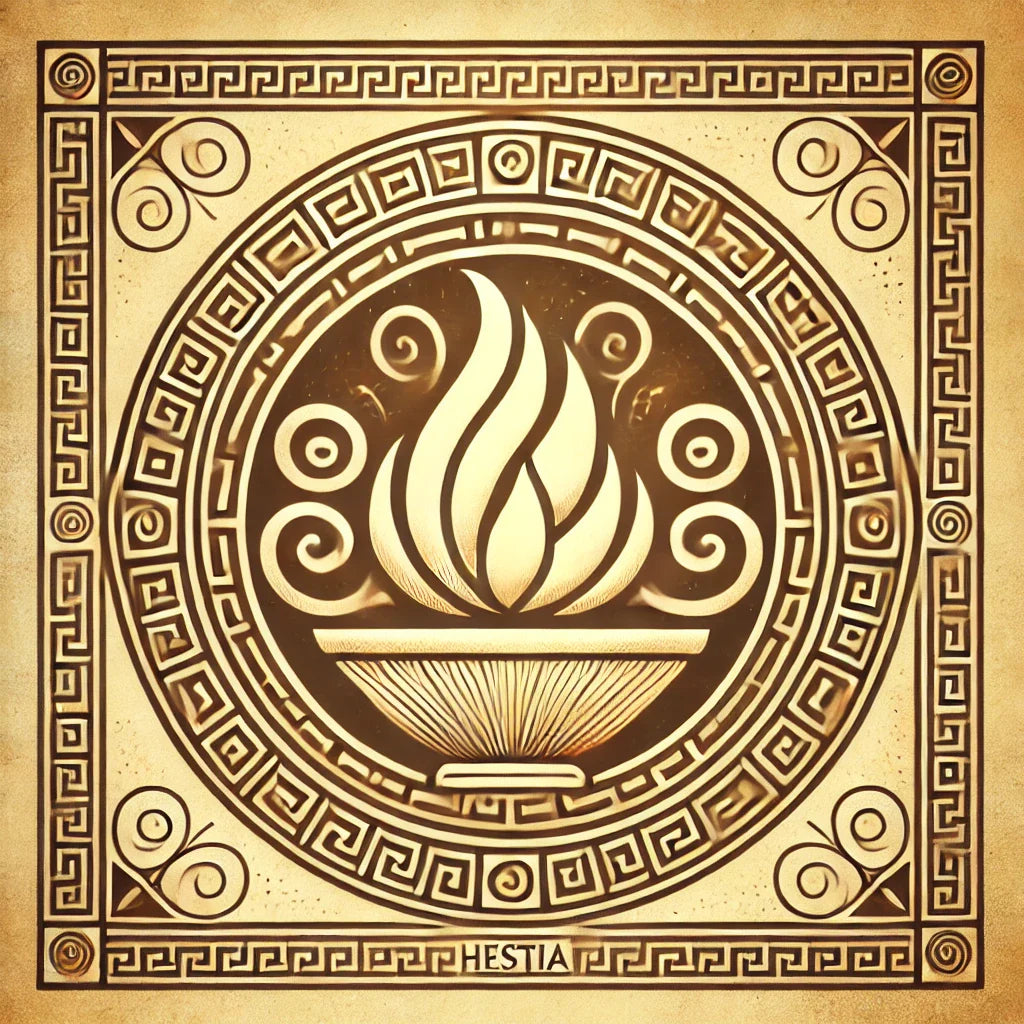
Greek Goddess Hestia
Share
Embracing the Spirit of Hestia: The Greek Goddess of Domesticity and the Hearth
The ancient Greeks believed that every home, no matter its size or grandeur, was touched by the presence of Hestia, the revered goddess of domesticity, the hearth, and family life. Unlike other gods, who were often depicted in grand myths or epic battles, Hestia's power lay in her quiet, nurturing presence, embodying the warmth of the home and the sense of togetherness it fosters.
Who is Hestia?
Hestia was the eldest child of Cronus and Rhea, making her the sister of Zeus, Hera, Poseidon, Hades, and Demeter. According to myth, Cronus swallowed each of his children to prevent them from usurping his power. When Hestia was eventually freed by her youngest brother, Zeus, she chose a path of peace and dedication, vowing to focus solely on her divine duties.
As Hestia tended to involve herself less in the high dramas of Greek mythology, she is frequently an understated figure. But there should be no mistaking the essential position within the Olympian pantheon that she occupied. Not only was she the goddess of the home and family, she was also the guardian of communal harmony. As such, any space in ancient Greece where people might gather around a fire could, legitimately, be considered her domain.
In a culture that so revered hospitality and community, Hestia’s essence was interwoven with virtually every aspect of daily life in ancient Greece. However, as the millenia have passed, she has become most associated with her role presiding over domestic harmony. Possibly this is because this Goddess' sacred symbol - the hearth - is associated as being the heart of the home; a place for a family to gather, to cook and to find warmth, and safety.
The Role of Hestia in Greek Life
It was customary for each household to dedicate the first portion of every meal to Hestia, often by casting it into the fire as an offering. Her presence was acknowledged at public hearths and altars as well, which made her a bridge between the private and the communal. When Greek colonists set out to establish new cities, they carried a flame from Hestia's hearth in their homeland to light the hearth in their new settlements, symbolising the continuity and unity of the community.
In a broader, symbolic sense, the hearth represents the home itself and the warmth, stability, and sense of security associated with it.
Hestia's Unassuming Power
Hestia’s nature was distinctive among the Greek gods; she was gentle, peaceful, and non-confrontational. Rather than being depicted as a figure who craved adoration or glory, Hestia remained humble and grounded, focusing on maintaining stability and balance. As the goddess who abstained from the struggles for power among the Olympians, Hestia became a symbol of serenity and inner strength. Her influence could be felt in quiet moments, in the flicker of a fire, and in the sense of safety that comes with a loving home.
Does Hestia’s Qualities Matter Today?
In our fast-paced world, where distractions are endless, the essence of Hestia—her calm and grounding presence—remains deeply relevant. Her spirit reminds us of the importance of cultivating spaces of warmth, connection, and stillness within our homes.
The Greek House Interiors & Hestia's Influence
The Greek House Interiors embodies those same values as Hestia, with its passion for Greek culture, and how it's reflected in the products that fill Greek homes sparking joy for the people who live in them, creating a warm, homely environment encompassing hospitality and togetherness with friends and family.
Explore our authentic and beautiful handmade products, created by highly skilled individuals and small family-run businesses throughout Greece from drinkware and tableware to traditional weaving, kitchenware and extra virgin olive oil.

